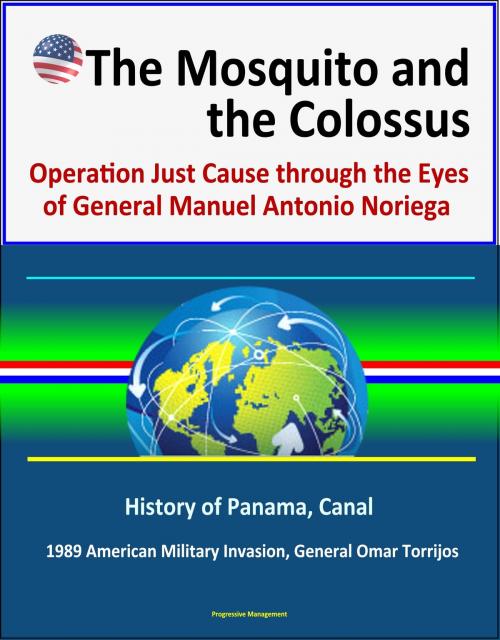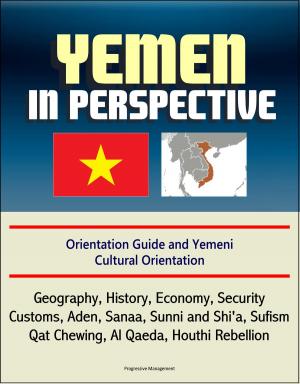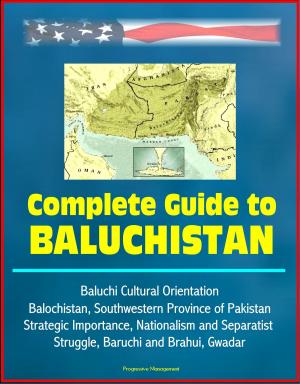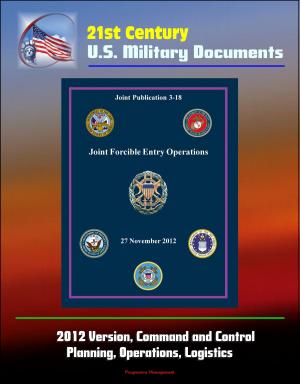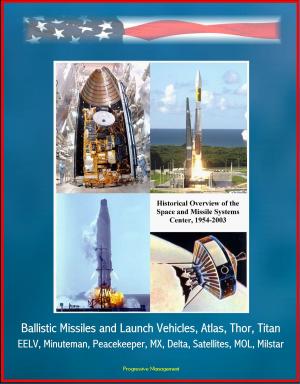The Mosquito and the Colossus: Operation Just Cause through the Eyes of General Manuel Antonio Noriega - History of Panama, Canal, 1989 American Military Invasion, General Omar Torrijos
Nonfiction, History, Americas, Central America, Military, United States| Author: | Progressive Management | ISBN: | 9781310140044 |
| Publisher: | Progressive Management | Publication: | May 19, 2016 |
| Imprint: | Smashwords Edition | Language: | English |
| Author: | Progressive Management |
| ISBN: | 9781310140044 |
| Publisher: | Progressive Management |
| Publication: | May 19, 2016 |
| Imprint: | Smashwords Edition |
| Language: | English |
This excellent report has been professionally converted for accurate flowing-text e-book format reproduction. Panama began its modern history as a semi-colonial appendage of the United States (US). Since gaining independence in 1903, Panama witnessed both elitist quasi-democratic governments and authoritarian populist governments. The oligarchic system in place throughout much of Panama's history was a significant hindrance to real democracy taking hold within the country. Democracy was further set back by the inordinate power exerted by US presence on the isthmus throughout the twentieth century. Many Panamanian leaders would practice duplicity over US and Panamanian relations that benefited their interests when necessary but would also denounce them in the same breath when it fit their local political interests. Through time, many Panamanians felt it created an imperial relationship that the people of Panama saw as overbearing and obtrusive. Today, Iraqis have the same concern as they feel that US intervention was due to imperialistic ambitions over oil.
In the summer and fall of 1989, while the United States had their eyes fixated on the events in Eastern Europe that ended the Cold War, a different kind of storm was brewing in Panama. Noriega's conflict with the US escalated from one crisis to another, gaining him some victories that strengthened his position inside Panama and motivated him to challenge the US even further. From 1988 to 1989 Noriega supported a regime that harassed American citizens in Panama and hindered full implementation of America's rights under the 1977 Panama Canal treaties. As a result, the U.S. launched Operation Just Cause on December 20, 1989.
Operation Just Cause served as a harbinger of the changes to future conflicts that dawned from the post-Cold War era. The change that came about is the criticality of gaining understanding and knowledge of a region through the study of local interpretations regarding history, politics, and social issues. Initial research shows that very little literature available to American service members presents an adequate Panamanian narrative of the events surrounding Operation Just Cause. In this case, the insights of the crisis from General Noriega's vantage point. General Noriega's perspectives provide information for critical analysis of the motivations and interests behind the actions of foreign leaders. This study argues that the world's complexity beckons for an understanding achievable only through the study of the local interpretation of historical events. As a result, it is vital to have General Noriega's view of Operation Just Cause in order to balance the historical narrative and provide the unique and necessary insights that only General Noriega can provide.
INTRODUCTION * Background * Research Question * Hypothesis * Methodology * Theoretical Framework * Ottaway - Authoritarian and Semi-Authoritarian Rule * HISTORY OF PANAMA * Pre-Independence * Panama's Annus Mirabilis * Political Setting * Nacionalismo y Personalismo * The Maelstrom * GENERAL OMAR TORRIJOS * The Manifestation of Ideas * A Coup Like No Other * Bonapartism * The Torrijos-Carter Treaties * Torrijos' Invisible Hand * GENERAL MANUEL ANTONIO NORIEGA * Ego Sum Qui Sum * Ascension to Power * The Road to Perdition * Barletta Must Go * Hell Hath No Fury as a Potential Dictator Scorned * Drug Indictments Initiate Military Planning * Elections Nullified * The Failed Coup * An Offer He Could Not Refuse * The Invasion * CONCLUSION * Noriega's Final Assessment * Implications * APPENDICES * Appendix A * Appendix B
This excellent report has been professionally converted for accurate flowing-text e-book format reproduction. Panama began its modern history as a semi-colonial appendage of the United States (US). Since gaining independence in 1903, Panama witnessed both elitist quasi-democratic governments and authoritarian populist governments. The oligarchic system in place throughout much of Panama's history was a significant hindrance to real democracy taking hold within the country. Democracy was further set back by the inordinate power exerted by US presence on the isthmus throughout the twentieth century. Many Panamanian leaders would practice duplicity over US and Panamanian relations that benefited their interests when necessary but would also denounce them in the same breath when it fit their local political interests. Through time, many Panamanians felt it created an imperial relationship that the people of Panama saw as overbearing and obtrusive. Today, Iraqis have the same concern as they feel that US intervention was due to imperialistic ambitions over oil.
In the summer and fall of 1989, while the United States had their eyes fixated on the events in Eastern Europe that ended the Cold War, a different kind of storm was brewing in Panama. Noriega's conflict with the US escalated from one crisis to another, gaining him some victories that strengthened his position inside Panama and motivated him to challenge the US even further. From 1988 to 1989 Noriega supported a regime that harassed American citizens in Panama and hindered full implementation of America's rights under the 1977 Panama Canal treaties. As a result, the U.S. launched Operation Just Cause on December 20, 1989.
Operation Just Cause served as a harbinger of the changes to future conflicts that dawned from the post-Cold War era. The change that came about is the criticality of gaining understanding and knowledge of a region through the study of local interpretations regarding history, politics, and social issues. Initial research shows that very little literature available to American service members presents an adequate Panamanian narrative of the events surrounding Operation Just Cause. In this case, the insights of the crisis from General Noriega's vantage point. General Noriega's perspectives provide information for critical analysis of the motivations and interests behind the actions of foreign leaders. This study argues that the world's complexity beckons for an understanding achievable only through the study of the local interpretation of historical events. As a result, it is vital to have General Noriega's view of Operation Just Cause in order to balance the historical narrative and provide the unique and necessary insights that only General Noriega can provide.
INTRODUCTION * Background * Research Question * Hypothesis * Methodology * Theoretical Framework * Ottaway - Authoritarian and Semi-Authoritarian Rule * HISTORY OF PANAMA * Pre-Independence * Panama's Annus Mirabilis * Political Setting * Nacionalismo y Personalismo * The Maelstrom * GENERAL OMAR TORRIJOS * The Manifestation of Ideas * A Coup Like No Other * Bonapartism * The Torrijos-Carter Treaties * Torrijos' Invisible Hand * GENERAL MANUEL ANTONIO NORIEGA * Ego Sum Qui Sum * Ascension to Power * The Road to Perdition * Barletta Must Go * Hell Hath No Fury as a Potential Dictator Scorned * Drug Indictments Initiate Military Planning * Elections Nullified * The Failed Coup * An Offer He Could Not Refuse * The Invasion * CONCLUSION * Noriega's Final Assessment * Implications * APPENDICES * Appendix A * Appendix B
